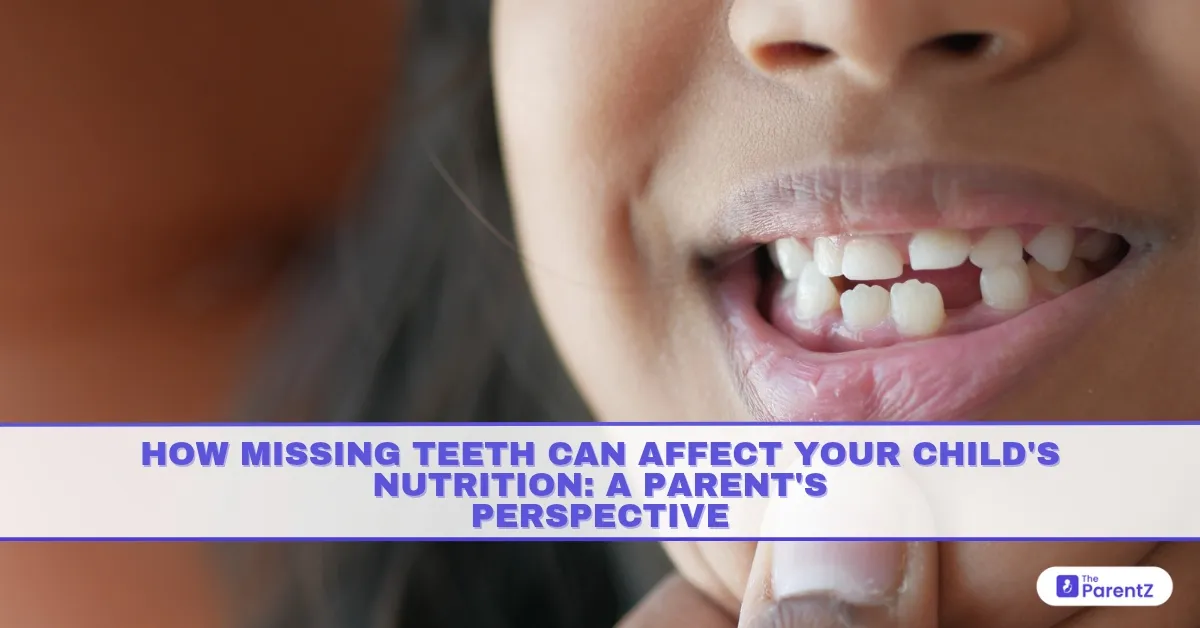Every parent wants their child to grow strong and healthy, but what happens when missing teeth make eating difficult? Tooth loss in children, whether due to cavities, injuries, or genetics, can affect their ability to chew properly, leading to poor digestion and nutritional deficiencies.
Proper nutrition is essential for a child’s growth, and when they struggle to eat certain foods, it can impact their overall health. In this article, we’ll explore how missing teeth affect nutrition, potential risks, and solutions to ensure your child continues to get the nutrients they need.
Why Are Teeth Important for Nutrition?
Teeth play a vital role in breaking down food before digestion. Each type of tooth serves a specific purpose:
• Incisors: Bite into foods like fruits and vegetables.
• Canines: Tear through fibrous foods such as meat.
• Molars and Premolars: Grind and chew food thoroughly before swallowing.
When a child loses one or more of these teeth too early, they may face chewing difficulties, poor digestion, and a reluctance to eat certain foods.
How Missing Teeth Affect a Child’s Diet
1. Difficulty Chewing and Food Avoidance
Children with missing teeth often struggle with:
Hard and crunchy foods like carrots, apples, and nuts.
Chewy foods like meat and certain grains.
Fibrous vegetables that require extensive chewing.
This can cause them to prefer processed, softer foods that may lack essential nutrients, increasing the risk of poor nutrition and deficiencies.
2. Poor Digestion and Nutrient Absorption
Chewing is the first step of digestion, helping break food into smaller pieces. If a child cannot chew properly:
Their stomach has to work harder, leading to bloating or discomfort.
Nutrient absorption may be reduced, especially for fibre, iron, and calcium, which are crucial for growth and development.
3. Increased Risk of Poor Growth and Malnutrition
If eating becomes frustrating or painful, children may:
Eat less than required, leading to weight loss or stunted growth.
Become picky eaters, limiting their nutrient intake.
Over time, these factors can lead to growth delays and weakened immunity.
4. Speech and Self-Esteem Issues
Missing teeth can also impact speech clarity, making it difficult to pronounce certain words. This may cause:
Lower confidence in social settings.
Challenges in school participation due to unclear speech.
5. Increased Risk of Future Dental Problems
When a tooth is lost, neighbouring teeth may shift, leading to:
Misalignment, which may require orthodontic treatment.
Gum problems and jaw discomfort due to improper chewing.
Common Causes of Tooth Loss in Children
• Cavities & Tooth Decay: Poor oral hygiene can lead to early tooth loss.
• Accidents & Injuries: Falls, sports injuries, or rough play may knock out teeth.
• Genetic Conditions: Some children are born missing certain teeth (hypodontia).
• Early Loss of Baby Teeth: Losing baby teeth too soon can create gaps before permanent teeth emerge.
How to Ensure Proper Nutrition for Kids with Missing Teeth
If your child has missing teeth, here’s how you can help maintain a balanced diet while making eating easier:
1. Modify Food Textures Without Losing Nutrition
- Steam or roast vegetables to soften them (e.g., carrots, broccoli).
- Cut fruits into small pieces or serve pureed options like applesauce.
- Use ground or shredded meats instead of large chunks.
2. Focus on Soft, Nutrient-Dense Foods
- To ensure they receive essential nutrients, offer:
- Proteins: Eggs, yogurt, tofu, lentils, and fish.
- Calcium-rich foods: Dairy, fortified plant-based milk, and cheese.
- Healthy fats: Avocados, nut butters, and smoothies.
- Fiber-rich foods: Oatmeal, mashed beans, and pureed vegetables.
3. Maintain Good Oral Hygiene to Prevent Further Tooth Loss
- Encourage twice-daily brushing with fluoride toothpaste.
- Teach flossing habits to prevent cavities and gum disease.
- Schedule regular dental check-ups to monitor oral health.
4. Consider Dental Solutions for Missing Teeth
A pediatric dentist may suggest:
- Space Maintainers: To prevent teeth from shifting if a baby tooth is lost too early.
- Orthodontic Treatment: Braces or aligners to correct misalignment caused by missing teeth.
- Dental Implants or Bridges (for older children): To replace missing permanent teeth.
When to See a Dentist
Schedule a dental visit if your child:
- Complains of pain while eating or avoids certain foods.
- Shows difficulty chewing due to missing teeth.
- Experiences poor weight gain or slow growth.
- Has gaps that affect their speech or self-esteem.
A dentist can assess the situation and recommend the best solutions for maintaining your child’s nutrition and oral health.
Conclusion
Missing teeth can affect a child’s ability to eat, digest food properly, and absorb essential nutrients, potentially leading to growth delays, malnutrition, and confidence issues. However, with the right dietary adjustments, oral care practices, and dental solutions, parents can help their children maintain good health.
If your child struggles with missing teeth, consult a pediatric dentist to explore treatment options and ensure they continue to thrive with a healthy smile.





Be the first one to comment on this story.